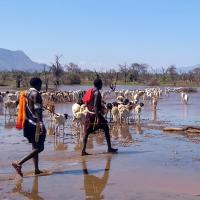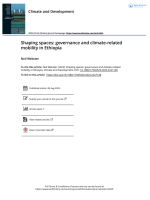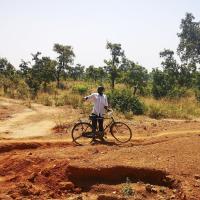Governing Climate Mobility
The Governing Climate Mobility programme (GCM) examines how governance contexts influence mobility options and decisions in areas affected by climate change. Development literature and interventions have emphasized the importance of governance and not least local governance, when seeking to enhance livelihood conditions in different localities and to counter the effects of climate change. However, government and donor interest in promoting effective decentralized local governance has tended to decline in recent years. At the same time promotion of the global governance of climate change has grown considerably and the perceived challenges posed by international migration sit high on international agendas.
GCM posits that attention to the role of local governance is more important than realised when addressing the effects of climate change on local populations, not least in attempting to understand the dynamics driving households’ and individuals’ climate-related mobility. It is suggested that the roles of local government and informal authorities can and should be key factors in the shaping of climate change responses and in addressing mobility practices and that these roles remain under-researched, their importance under-estimated.
GCM will undertake fieldwork in Ethiopia and Ghana, both countries in which the effects of climate change are increasing, and where mobility is increasingly practiced as its patterns also change. The nature and practices of government, central and local, are markedly different in the two countries as is the presence and roles of other local authorities allowing analysis of the possible role of governance in shaping these mobility practices
The aims are:
- To map and analyse the diverse forms of mobility practiced in contexts affected by climate change, specifically in Ethiopia and Ghana;
- To explore these practices for the types of agency involved: from individual and household actors through to forms of agency rooted in structural factors that impact on livelihood conditions;
- To build an understanding of the diverse roles played by local governance actors in shaping these mobility practices;
And more broadly:
- To bring theoretical ideas from analytical approaches to climate change, migration and governance into a common framework suitable for GCM’s research;
- To analyse the extent to which government policies can affect mobility practices in positive and negative ways;
- To derive policy contributions from the empirical and analytical work that can benefit individuals, their governments and other development actors in local, national and international spaces.
Funding
The research is funded by Danida, Danish Ministry of Foreign Affairs with additional funding and support provided by the Danish Institute for International Studies (DIIS). The Danida Fellowship Centre administers the funding on Danida’s behalf and the project is managed and coordinated by DIIS.
DIIS is an independent Danish research institute and the GCM research and its findings are the responsibility of the three partner institutions – DIIS, CMS and FSS – and do not necessarily reflect the position or policies of Danida and the Danish Ministry of Foreign Affairs.
Brief introduction to GCM
Governing Climate Mobility: A New Research Agenda - a PowerPoint presentation (pdf, 5 MB)
GCM started in March 2019 and runs until February 2023. It is coordinated by the Danish Institute for International Studies and the research is undertaken in close collaboration with the Centre for Migration Studies (CMS) at the University of Ghana, Accra, and the Forum for Social Studies (FSS) in Addis Ababa, Ethiopia.
Senior researchers and Programme researchers
Ghana - CMS: Joseph Teye & Francis Jarawura
Ethiopia - FSS: Zerihun Mohammed & Dessalegn Rahmato
Denmark - DIIS: Neil Webster, Ninna Nyberg Sørensen, Nauja Kleist, Lily Salloum Lindegaard & Marie Ladekjær Gravesen
PhD researchers
Ghana - CMS: Shelta Gatsey & Richard Seyram
Ethiopia - FSS: Adane Alemayehu & Andnet Gizachew
Field Assistants
Ghana - CMS: To be appointed
Ethiopia - FSS: To be appointed
Ongoing Activities
- Secondary data analysis: The Governing Climate Mobility programme has completed a set of Scoping Studies, which provide background information and a review of existing secondary data on climate, mobility and governance in the programme’s four study sites (two in Ghana and two in Ethiopia). These provide initial analysis and identify relevant trends for each study site. These are currently being prepared for publication as reports.
- Primary data collection: The Centre for Migration Studies (CMS) has completed survey data collection in Ghana and the Forum for Social Studies (FSS) is currently carrying out the survey in Ethiopia. On the basis of this, the programme is preparing for qualitative data collection involving interviews with key informants, focus groups and group discussions.
- GIS data collection and data visualization: GIS data collection is also underway. GIS data will contribute to data triangulation and will also be used as the basis for data visualization.
- Preparing for Development Studies Association (DSA) Conference Panel: The programme has convened the panel ‘Unsettling Climates: Exploring climate mobility with a governance perspective’ which will be held at the virtual DSA conference in the summer of 2021.
- Covid-19 considerations: Joint fieldwork activities and in-person programme workshops have been suspended for the time being. Primary data collection is solely with CMS in Ghana and FSS in Ethiopia. The two teams have experienced some delays due to the unfolding Covid-19 situations in each country, but less than was initially anticipated. Inter-institutional work on secondary data collection has commenced. However, the Covid-19 situation has delayed the establishment of stakeholder groups in Ethiopia and Ghana. It is hoped that these can be established once restrictions on international travel have been lifted.
Previous Activities
- The GCM programme has published two DIIS Working Papers that explore the context for governance, mobility and climate change adaptation in Ghana and Ethiopia. (See the list of programme publications below.)
- Due to Covid-19, it has been necessary to make a number of revisions to the original timeplan and, in particular, to the plans for data collection. The programme undertook a risk assessment and developed a set of scenarios for how to proceed. Although long-term implications are still unknown, the programme has already decided on changes in the immediate horrizon, including to hold PhD workshops online rather than in person, to push the start of fieldwork until November 2020, and in the meantime to focus on gathering remote sensing data.
Responding to a crisis: Lessons learned from Northern Ghana
A look at the Covid-19 crisis in Ghana illuminates response mechanisms and patterns that may be useful when approaching other crises – such as those caused by climate change.
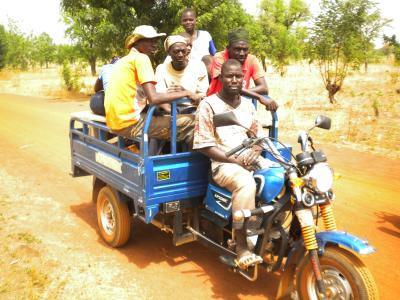
Research and activites
-
Journal Article2023governance and climate-related mobility in EthiopiaNeil Webster
-
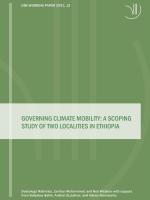 DIIS Working Paper2021A scoping study of two localities in EthiopiaDessalegn Rahmato, Zerihun Mohammed & Neil Anthony Webster
DIIS Working Paper2021A scoping study of two localities in EthiopiaDessalegn Rahmato, Zerihun Mohammed & Neil Anthony Webster -
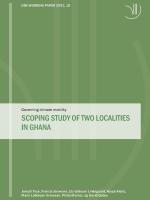 DIIS Working Paper2021scoping study of two localities in GhanaJoseph Teye, Francis Jarawura, Lily Salloum Lindegaard, Nauja Kleist, Marie Ladekjær Gravesen, Philip Mantey & David Quaye
DIIS Working Paper2021scoping study of two localities in GhanaJoseph Teye, Francis Jarawura, Lily Salloum Lindegaard, Nauja Kleist, Marie Ladekjær Gravesen, Philip Mantey & David Quaye -
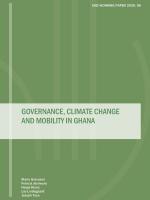 DIIS Working Paper2020Marie Ladekjær Gravesen, Lily Salloum Lindegaard, Francis Jarawura, Nauja Kleist & Joseph Teye
DIIS Working Paper2020Marie Ladekjær Gravesen, Lily Salloum Lindegaard, Francis Jarawura, Nauja Kleist & Joseph Teye -
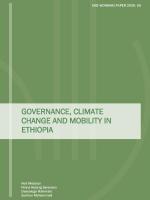 DIIS Working Paper2020Neil Anthony Webster, Ninna Nyberg Sørensen, Dessalegn Rahmato & Zerihun Mohammed
DIIS Working Paper2020Neil Anthony Webster, Ninna Nyberg Sørensen, Dessalegn Rahmato & Zerihun Mohammed -
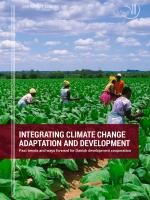 DIIS Report2020Past trends and ways forward for Danish development cooperationMikkel Funder, Lily Salloum Lindegaard, Esbern Friis-Hansen & Marie Ladekjær Gravesen
DIIS Report2020Past trends and ways forward for Danish development cooperationMikkel Funder, Lily Salloum Lindegaard, Esbern Friis-Hansen & Marie Ladekjær Gravesen
-
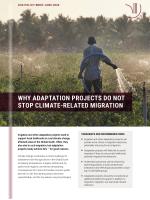 DIIS Policy Brief2023Lily Salloum Lindegaard, Nauja Kleist, Francis Jarawura & Joseph Teye
DIIS Policy Brief2023Lily Salloum Lindegaard, Nauja Kleist, Francis Jarawura & Joseph Teye -
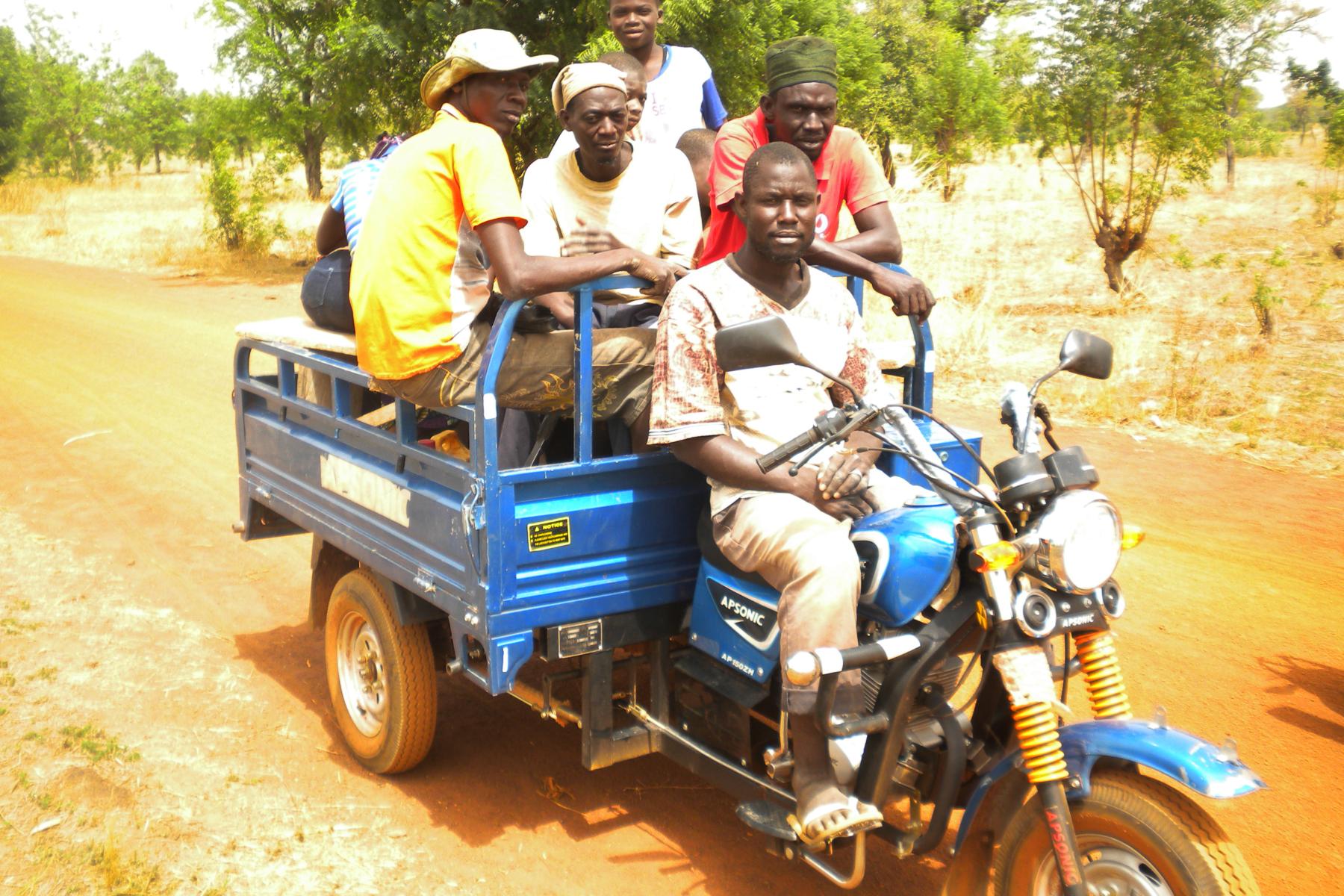 DIIS Blog2021Lessons learned from Northern GhanaMarie Ladekjær Gravesen & Francis Jarawura
DIIS Blog2021Lessons learned from Northern GhanaMarie Ladekjær Gravesen & Francis Jarawura -
 Photo/illustration by Pexels. Jens Mahnke. copyright licenseDIIS Comment2019A little more knowledge and a more nuanced perspective could greatly benefit thinking on policyNeil Anthony Webster
Photo/illustration by Pexels. Jens Mahnke. copyright licenseDIIS Comment2019A little more knowledge and a more nuanced perspective could greatly benefit thinking on policyNeil Anthony Webster
Contact





